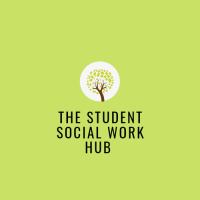Summers here, and if you’re wondering how to spend your time, and perhaps wanting to keep your critical mind ticking over, then we have ten book recommendations for you.
(Synopsis are from Goodreads, brief thoughts are from Student Hub member Rosie).
- Listen (Non-Fiction) – Kathryn Mannix
‘From the bestselling author of With the End in Mind, this is a book about the conversations that matter and how to have them better – more honestly, more confidently and without regret.
A child coming out to their parent. A family losing someone to terminal illness. A friend noticing the first signs of someone’s dementia. A careers advisor and a teenager with radically different perspectives.
There are moments when we must talk, listen and be there for one another. Why do we so often come away from those times feeling like we could have done more, or should have been braver in the face of discomfort? Why do we skirt the conversations that might matter most?
By bringing together stories with a lifetime’s experience working in medicine and the newest psychology, Mannix offers lessons for how we can better speak our mind and help when others need to.’
This book give thoughtful insights from intimate conservations, and tips on how to navigate these moments. It was great to read and reflect on my own past responses, while also thinking about how I will go forward with sensitivity, respective, and a listening ear.
- Careless (Fiction) – Kirsty Capes
‘Sometimes it’s easy to fall between the cracks…
At 3.04pm on a hot, sticky day in June, Bess finds out she’s pregnant.
She could tell her social worker Henry, but he’s useless.
She should tell her foster mother, Lisa, but she won’t understand.
She really ought to tell Boy, but she hasn’t spoken to him in weeks.
Bess knows more than anyone that love doesn’t come without conditions.
But this isn’t a love story…’
Narrated by Bess, this is a book about a young girl, living with her long-term foster parents and their daughter. She is confused, frustrated, unheard, and panicing, the story is about listening, support, and vitality of relationships
- The End of Bias (Non-Fiction) – Jessica Nordell
‘The End of Bias is a transformative, ground breaking exploration into how we can eradicate unintentional bias and discrimination, the great challenge of our age.
‘Implicit bias: persistent, unintentional prejudiced behaviour that clashes with our consciously held beliefs. We know that it exists, to corrosive and even lethal effect. We see it in medicine, we see it in finance, and as we know from the police killings of so many Black Americans, bias can be deadly. But are we able to step beyond recognition of our prejudice to actually change it?
With fifteen years’ immersion in the topic, Jessica Nordell digs deep into the cognitive science, social psychology, and developmental research that underpin current efforts to eradicate unintentional bias and discrimination. She examines diversity training, deployed across the land as a corrective but with inconsistent results. She explores what works and why: the diagnostic checklist used by doctors at Johns Hopkins Hospital that eliminated disparate treatment of men and women in disease prevention; the preschool in Sweden where teachers found ingenious ways to uproot gender stereotyping: the police unit in Oregon where the practice of mindfulness and specialized training has coincided with a startling drop in the use of force.
The End of Bias: A Beginning brings good news: Biased behaviour can change; the approaches outlined here can transform ourselves and our world.’
This book really encourages its reader to reflect on their past opinions and beliefs, unpick how they may have been formed, and challenge themselves to change. Going forward after reading this perhaps you will be more conscious of how negative bias may impact responses, and what you can do to support yourself and peers to tackle this barrier for future good practice.
- Gender Euphoria (Non- Fiction) – Laura Kate Dale
‘Gender Euphoria: a powerful feeling of happiness experienced as a result of moving away from one’s birth-assigned gender.
So often the stories shared by trans people about their transition centre on gender dysphoria: a feeling of deep discomfort with their birth-assigned gender, and a powerful catalyst for coming out or transitioning. But for many non-cisgender people, it’s gender euphoria which pushes forward their transition: the joy the first time a parent calls them by their new chosen name, the first time they have the confidence to cut their hair short, the first time they truly embrace themself.
In this ground-breaking anthology, nineteen trans, non-binary, agender, gender-fluid and intersex writers share their experiences of gender euphoria: an agender dominatrix being called ‘Daddy’, an Arab trans man getting his first tattoos, a trans woman embracing her inner fighter.
What they have in common are their feelings of elation, pride, confidence, freedom and ecstasy as a direct result of coming out as non-cisgender, and how coming to terms with their gender has brought unimaginable joy into their lives.’
This collection may be a step out of your own narrative, it is written by own voice perspective and it gives great examples of trans joy and affirmation. These moments could perhaps be emulated in the communication, interactions, and bonds we form when working with children, young adults and adults alike.
- Shuggie Bain (Fiction) – Douglas Stewart
‘It is 1981. Glasgow is dying and good families must grift to survive. Agnes Bain has always expected more life. She dreams of greater things: a house with its own front door and a life bought and paid for outright (like her perfect, but false, teeth). But Agnes is abandoned by her philandering husband, and soon she and her three children find themselves trapped in a decimated mining town. As she descends deeper into drink, the children try their best to save her, yet one by one they must abandon her to save themselves. It is her son Shuggie who holds out hope the longest.
Shuggie is different. Fastidious and fussy, he shares his mother’s sense of snobbish propriety. The miners’ children pick on him and adults condemn him as no’ right. But Shuggie believes that if he tries his hardest, he can be normal like the other boys and help his mother escape this hopeless place.
Douglas Stuart’s Shuggie Bain lays bare the ruthlessness of poverty, the limits of love, and the hollowness of pride. A counterpart to the privileged Thatcher-era London of Alan Hullinghorst’s The Line of Beauty, it also recalls the work of Édouard Louis, Frank McCourt, and Hanya Yanagihara, a blistering debut by a brilliant writer with a powerful and important story to tell.’
Stewart skilfully sets the atmosphere of this time, writing from his own experiences, about Shuggie and his family. It is tender, touching, and shines light on generation poverty and trauma, the repercussions of which are long stretching.
- The Invisible Child (Non – Fiction, told in a fictional way) – Andera Elliot
‘The riveting, unforgettable story of a girl whose indomitable spirit is tested by homelessness, poverty, and racism in an unequal America—from Pulitzer Prize-winning journalist Andrea Elliott of The New York Times
Invisible Child follows eight dramatic years in the life of Dasani Coates, a child with an imagination as soaring as the skyscrapers near her Brooklyn homeless shelter. Born at the turn of a new century, Dasani is named for the bottled water that comes to symbolize Brooklyn’s gentrification and the shared aspirations of a divided city. As Dasani grows up, moving with her tight-knit family from shelter to shelter, this story goes back to trace the passage of Dasani’s ancestors from slavery to the Great Migration north. By the time Dasani comes of age, New York City’s homeless crisis is exploding as the chasm deepens between rich and poor.
In the shadows of this new Gilded Age, Dasani must lead her seven siblings through a thicket of problems: hunger, parental drug addiction, violence, housing instability, segregated schools, and the constant monitoring of the child-protection system. When, at age thirteen, Dasani enrols at a boarding school in Pennsylvania, her loyalties are tested like never. As she learns to “code switch” between the culture she left behind and the norms of her new town, Dasani starts to feel like a stranger in both places. Ultimately, she faces an impossible question: What if leaving poverty means abandoning the family you love?
By turns heart-breaking and revelatory, provocative, and inspiring, Invisible Child tells an astonishing story about the power of resilience, the importance of family, and the cost of inequality. Based on nearly a decade of reporting, this book vividly illuminates some of the most critical issues in contemporary America through the life of one remarkable girl.’
This is a long running story about Dasani, her family, and the care she and they receive. The mistake made by officials as numerous, and it’ll have the reader really thinking about what it means to intervene, not just for the child but for the whole home and their wider connections.
- The Anti-Racist Social Worker (Non-Fiction) – Tanya Moore and Gloria Simango
‘This is the story of an anti-racist campaign staged by social workers and allied health professionals which encourages readers to consider their own possibilities for anti-racist action.
The murder of George Floyd in May 2020 and subsequent expression of anger, frustration and grief at the continued existence of racism led to more sophisticated and honest conversations about racism and its impact. Social work also started to recognise its own problem with racist systems and its failure as a profession that strives for social justice to have addressed this in any meaningful way.
The Anti-Racist Social Worker describe a successful campaign of anti-racist direct action that was staged by a small group of social workers and occupational therapists. The opening chapter tells the story of the campaign from the coming together of the campaign group to the concluding day of action. Subsequent chapters are written by campaign members at different stages of their career, from student social worker to Chief Social Worker for England. Each describes journeys to and stories of anti-racist activism. These stories are about either the writers’ experiences of racism and how this translated into action or their growing understanding of the impact of racism and subsequent decision to take personal action. Importantly, each chapter offers a personal case study and therefore a suggestion of individual anti-racist action that can be taken by social workers.
The Anti-Racist Social Worker is a call for action told through individual stories. It shows how those in social care and allied health professions can contribute in a meaningful way to the creation of the change we need and encourages everyone to consider their own roles in dismantling racism.’
Read this book, reflective on it messages, use its useful prompts, and better your practice. Shape it for inclusivity, support of your peers, allyship, and the understanding of your service users.
- Radical Help (Non-Fiction) – Hillary Cottam
‘How should we live: how should we care for one another; grow our capabilities to work, to learn, to love and fully realise our potential? This exciting and ambitious book shows how we can re-design the welfare state for this century. The welfare state was revolutionary: it lifted thousands out of poverty, provided decent homes, good education, and security. But it is out of kilter now: an elaborate and expensive system of managing needs and risks. Today we face new challenges. Our resources have changed. Hilary Cottam takes us through five ‘Experiments’ to show us a new design. We start on a Swindon housing estate where families who have spent years revolving within our current welfare systems are supported to design their own way out. We spend time with young people who are helped to make new connections – with radical results. We turn to the question of good health care and then to the world of work and see what happens when people are given different tools to make change. Then we see those over sixty design a new and affordable system of support. At the heart of this way of working is human connection. Upending the current crisis of managing scarcity, we see instead that our capacities for the relationships that can make the changes are abundant. We must work with individuals, families, and communities to grow the core capabilities we all need to flourish. Radical Help describes the principles behind the approach, the design process that makes the work possible and the challenges of transition. It is bold – and above all, practical. It is not a book of dreams. It is about concrete new ways of organising that already have been developing across Britain. Radical Help creates a new vision and a radically different approach that can take care of us once more, from cradle to grave.
This would make a great read for a first year Social Worker or Health Student, as it offers a good introduction of where and when welfare started in the UK. It also gives good examples of Hillary own initiatives, where some have worked and some haven’t, understanding that we can make mistakes, but with tweaking and unpicking what went wrong we can then try anew, not just papering over the cracks of broken ideas.
- Boys Don’t Cry (fiction) – Fíona Scarlett
‘Joe is 17, a gifted artist and a brilliant older brother to 12-year-old Finn. They live with their Ma and Da in a Dublin tower block called Bojaxhiu or ‘the Jax’. It’s not an easy place to be a kid, especially when your father, Frank, is the muscle for the notorious gang leader Dessie ‘The Badger’ Murphy. But whether it’s daytrips to the beach or drawing secret sketches, Joe works hard to show Finn life beyond the battered concrete yard below their flat.
Joe is determined not to become like his Da. But when Finn falls ill, Joe finds his convictions harder to cling to. With his father now in prison, his mother submerged in her grief, and his relationships with friends and classmates crumbling, Joe has to figure out how to survive without becoming what the world around him expects him to be.’
Do you need a cry? This book is primary about brothers, loss, and resilience. The writing is effortless, the story is consuming, and its emotional impactful, at just 178 pages, bring the tissues.
- When Stars are Scattered (Non-Fiction, Graphic Novel) – Victioria Jamieson and Omar Mohamed.
‘Heartbreak and hope exist together in this remarkable graphic novel about growing up in a refugee camp, as told by a Somali refugee to the Newbery Honor-winning creator of Roller Girl.
Omar and his younger brother, Hassan, have spent most of their lives in Dadaab, a refugee camp in Kenya. Life is hard there: never enough food, achingly dull, and without access to the medical care Omar knows his nonverbal brother needs. So when Omar has the opportunity to go to school, he knows it might be a chance to change their future . . . but it would also mean leaving his brother, the only family member he has left, every day.
Heartbreak, hope, and gentle humour exist together in this graphic novel about a childhood spent waiting, and a young man who is able to create a sense of family and home in the most difficult of settings. It’s an intimate, important, unforgettable look at the day-to-day life of a refugee, as told to New York Times Bestselling author/artist Victoria Jamieson by Omar Mohamed, the Somali man who lived the story.’
If you are new to developing your awareness of social matters this graphic novel could be a great place to start. Against adversity Omar not only shares his story here, he works now supporting other refuges and their resettlement.
If you do read any of these due to these recommendations, do tag us and we can discuss them with you.







